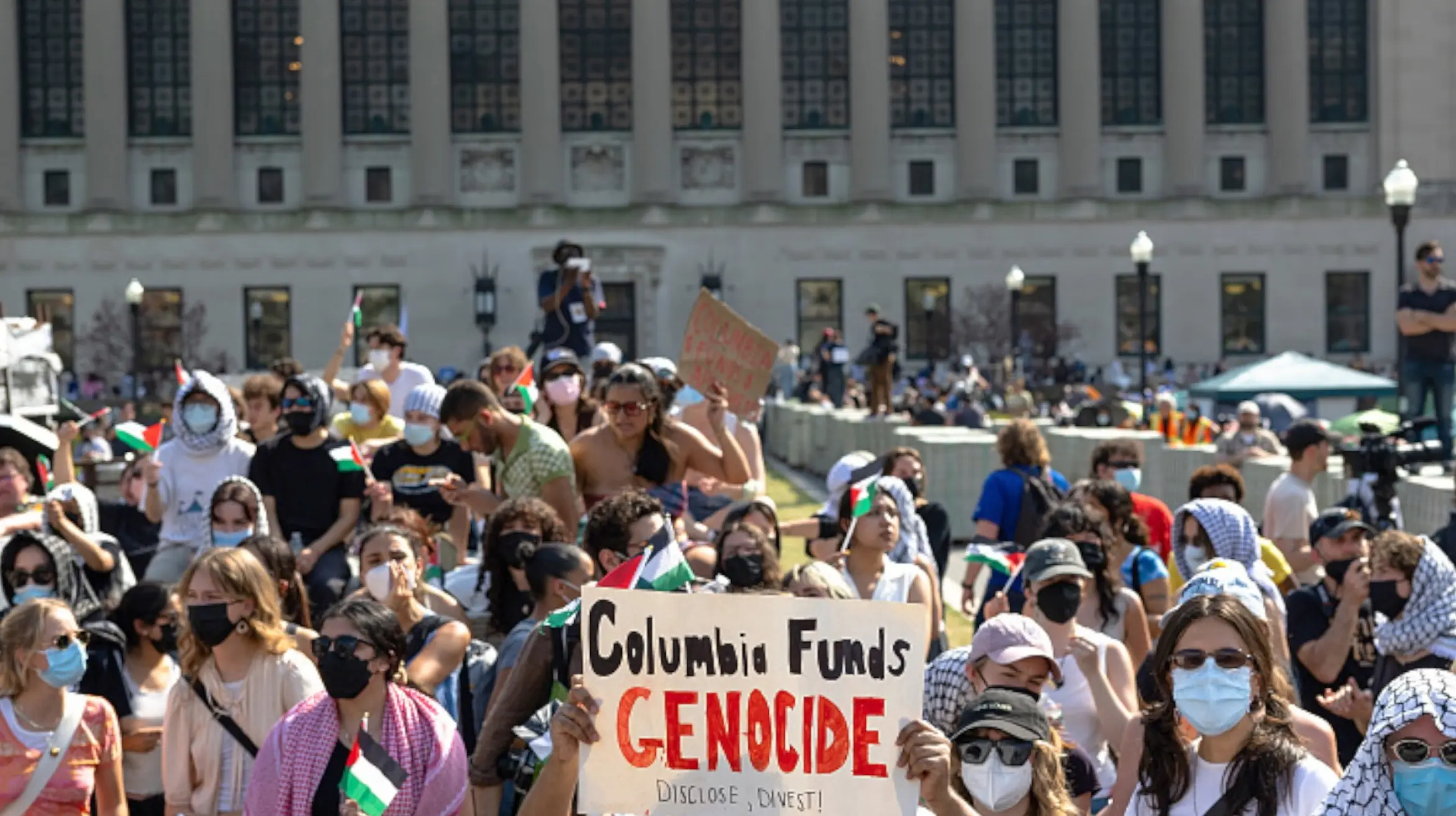USA (Transatlantic Today)— Pro-Palestinian protests by American students have escalated in recent weeks. Within the political class there is a consensus that the relationship with Israel is a priority. Therefore, the request to universities to release endowment funds from companies linked to Netanyahu’s country is something that deeply bothers
The conflict in the Middle East is distant from the United States. The distance between New York and Tel Aviv is approximately 9,000 kilometres. If the President decides to visit this country, he needs to travel for 11 to 15 hours on a direct trip. However, geopolitically, it is a critical component of its foreign policy. The region contains a wealth of energy resources to which access must be secured. However, the North American presence should be acknowledged to mitigate the impact of Russian and Iranian occurrences in the Arab world. By the way, combat terrorism and advance democracy.
U.S. Response to the Israel-Palestine Conflict
In the aftermath of a Hamas attack on Israel in October 2023, the Biden administration has been largely criticized for its handling of the ongoing conflict. Despite diplomatic efforts, including visits by Secretary of State Antony Blinken, progress towards achieving a ceasefire has failed repeatedly. The U.S. government’s response to the conflict has primarily involved humanitarian aid, military support, and diplomatic initiatives.
U.S. Actions and Support for Israel
According to Rosarion3, despite international calls to end the blockade and allow humanitarian aid into Gaza, the Netanyahu administration has not fully complied. In response, the United States undertook independent initiatives, including airlifting supplies and constructing a floating dock to facilitate aid delivery. Militarily, the U.S. deployed assets to deter escalation by groups allied with Hamas, while continuing to provide weapons to Israel. Diplomatically, the Biden administration utilized its veto power in the United Nations Security Council to shield Israel from resolutions critical of its actions.
Domestic Reactions and Political Implications
The U.S. government’s support for Israel has faced internal criticism, particularly amidst accusations of exacerbating the conflict. With the upcoming elections being imminent, President Biden’s stance on Israel has come under scrutiny, with opponents accusing him of condoning Palestinian suffering , Biden has faced sharp criticism from some Democrats for not pushing harder for a ceasefire or matching his tougher rhetoric on Israel with action Former President Donald Trump capitalized on the unrest, praising law enforcement’s response to student protests and framing the demonstrations as acts of extremism.
University Divestment Campaigns
A key point of contention revolves around university endowment funds invested in companies with ties to Israel. Students advocating for divestment argue that such investments indirectly support violence against Palestinians, prompting debate within academic institutions. The issue highlights broader societal implications, with major companies like Google and Microsoft being implicated due to their business relationships with Israel.
Israeli and International Figures’ Response
Israeli Prime Minister Benjamin Netanyahu has seen the protests as anti-Semitic, and considering them as an outcome of a rise in anti-Jewish sentiment across the United States. Conversely, international bodies such as the United Nations have defended the right to peaceful assembly while condemning hate speech and anti-Semitism.
Recent events underscore increasing concerns in the twenty-first century, including a return of hate speech and anti-Semitism from diverse sources. Furthermore, categorizing nonviolent demonstrations as anti-Semitic or terrorist acts raises concerns about freedom of expression and the government’s response to dissenting voices. These trends reflect broader socioeconomic unrests and historical tensions in modern discourse are still existed


























